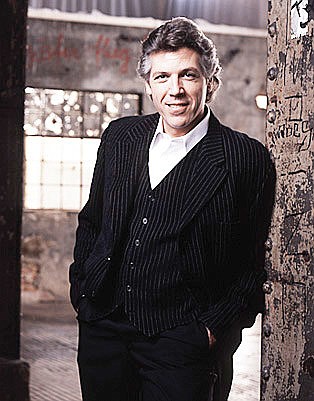- April 28, 2024
-
-
Loading

Loading

Thomas Hampson, one of the world’s greatest interpreters of opera and art songs, came to the Van Wezel, one of the world’s worst concert halls, last week with Warren Jones, the Rubinstein of collaborative pianists, for an illuminating and inspiring program of American art songs, under the auspices of the Sarasota Concert Association.
The intellectual side of Hampson told us, “We had more trouble choosing what not to sing … ” on this program, which is part of a larger foray into the Art Songs of America. But, given the enormous wealth of material, this was a fine “Panorama of American Song” that ran the gamut of composers from the 18th-century Francis Hopkinson, to the contemporary (and still living) Michael Daugherty.
The pastiche of songs in English, so beautifully sung that the printed texts were hardly needed, was a tribute to Hampson’s scholarship, curiosity and knowledge. What he and Jones did with those songs was a beacon of light to singers aspiring to perform with the best musicianship and technique heard anywhere.
Daugherty’s “Letter to Mrs. Bixby,” a heartrending epitaph based on a letter by Abraham Lincoln to “ … the mother of five sons who have died gloriously on the field of battle,” is, musically, no more than a simple passacaglia. But in the performance by Hampson and Jones, it became an overwhelmingly tragic eulogy that delivered a knockout punch to the gut. Margaret Bonds’ setting of Langston Hughes’ “The Negro Sings of Rivers,” with a piano part that’s a mix of Rachmaninov, Debussy and Gottschalk, was simply gorgeous in Jones’ magical hands. Hampson’s near-crooning sound and wondrous way with regional inflections were brilliant in songs by Copland, Homer and Damrosch, with the word “blood,” — or, as he sang it, “bluhd” — taking on the persona of an ardent evangelist bringing in the net. And “Look Down Fair Moon,” Naginski’s setting of a Whitman poem, was a real pindrop performance. Their encore of Copland’s “The Boatmen’s Dance” was so perfect, so controlled, so fervent, I can’t imagine it better.
So why did almost a quarter of the audience leave at intermission? I’m sure part of their problem was the dreadful acoustics in the Van Wezel. There are a few seats scattered through that house that allow you to hear acoustic performances. But, for the most part, hearing live music that’s not amplified is like sitting in a plane with your ears unpopped. Someday, some way, we will have a real concert hall.
The other reason is that many people don’t understand that a vocal recital is not an opera. Like chamber music, it’s an intimate, one-on-one experience in which each song (not aria) is a mini-drama. It’s much harder to be a recitalist, because with every song, you change characters without the added benefits of costumes or scenery. OK, maybe it’s an acquired taste but, like great wine and expensive caviar, it’s worth getting to know. And, when you have great artists such as Hampson and Jones to lead the way, it’s worth hanging in there and tasting something truly exquisite.